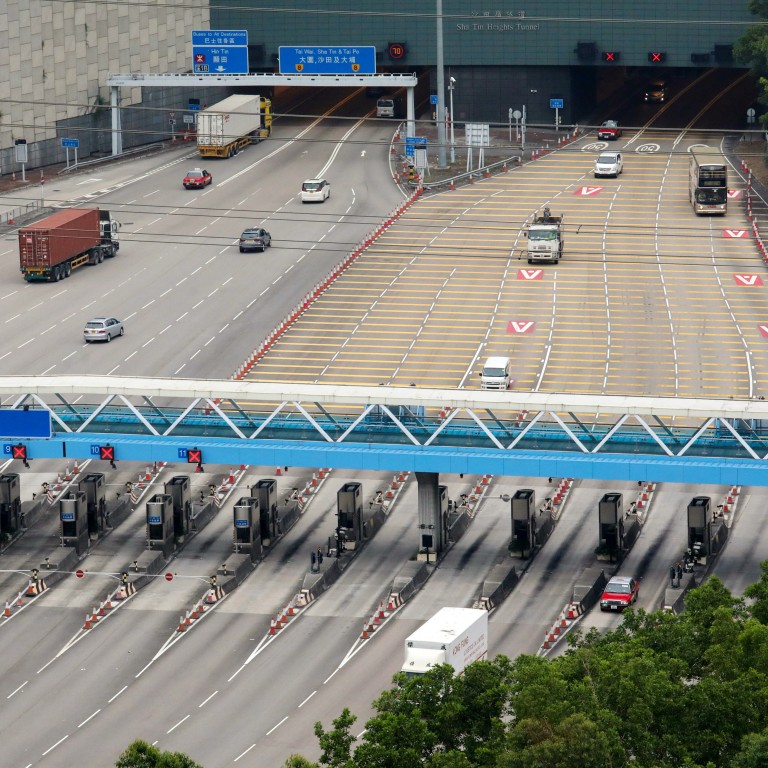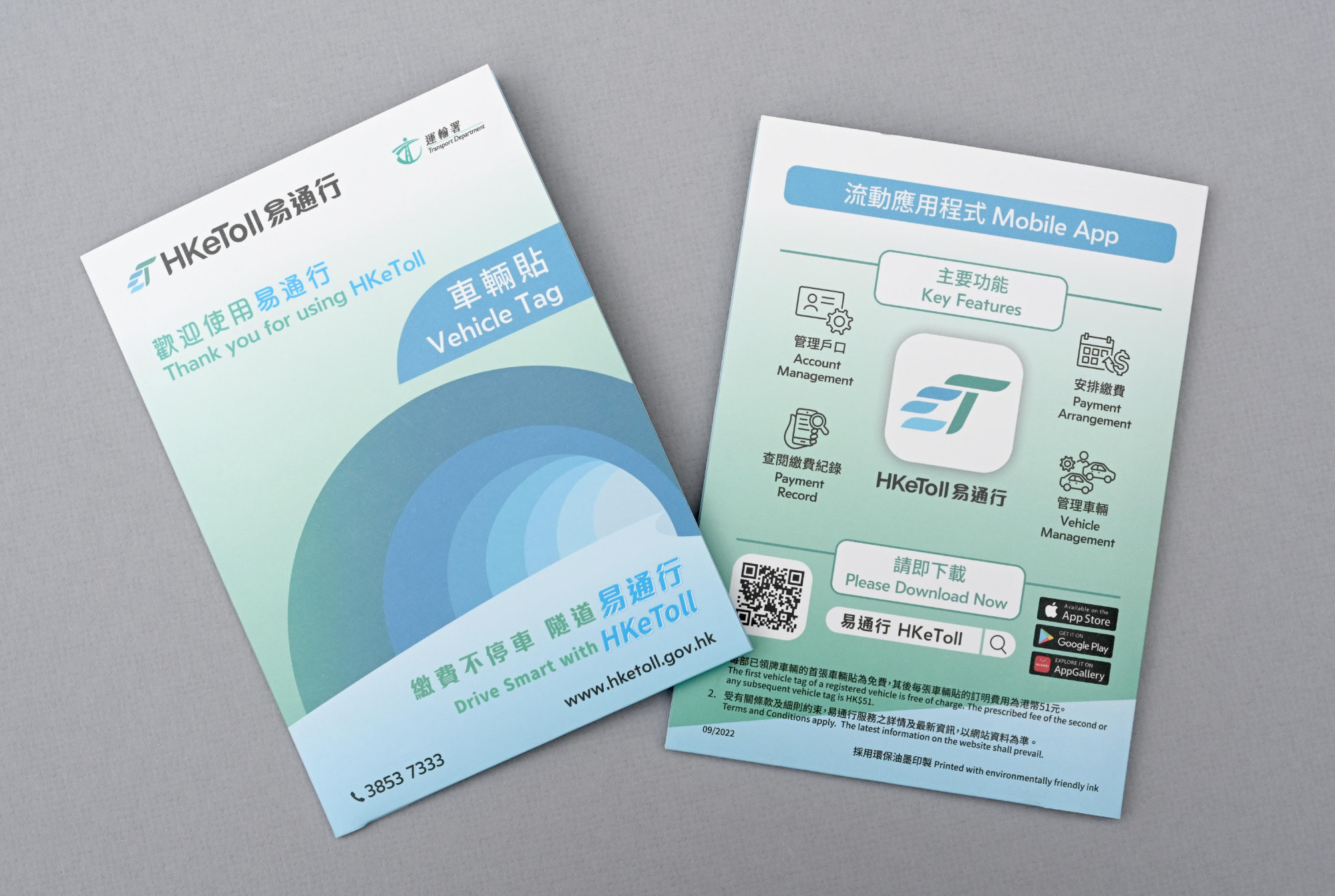
Hong Kong transport commissioner apologises for e-toll delay fiasco amid public backlash over application process
- Launch of e-toll system pushed back from February 26 to May 7 to give drivers time to apply for tags
- Union slams government for last-minute U-turn, which affects more than 40 workers
Hong Kong’s commissioner for transport on Tuesday apologised for a fiasco which saw authorities delaying a new electronic toll payment system amid a public backlash over red tape slowing down applications for vehicle tags.
The Transport Department announced on Monday the launch of the new e-toll system on the Tsing Sha Highway, connecting Tsing Yi and Sha Tin, would be pushed back from February 26 to May 7. It planned to implement the new arrangement at all government-tolled tunnels this year.
“I wish to apologise to car owners whose toll tag did not arrive on time,” commissioner Rosanna Law Shuk-pui told a radio programme on Tuesday after residents took to the airwaves to complain about the lengthy delivery process and unclear guidelines of the application.
An elderly citizen said she applied for the tag when she renewed her vehicle licence in May last year but did not receive it. She called the hotline and visited the licensing office, but the staff could not update her application. She was only told to apply again online, but she struggled to fill out the form.

Another caller complained the government had not provided enough information, questioning what he could do if the vehicle tag did not work or if he wanted to get a new car.
Law said more than 240,000 vehicle owners had applied for the tag when they renewed their registration last year. But around 16,000 applications were not processed because of system inconsistencies between the Transport Department and the contractor.
But Law said all 16,000 toll tags were eventually delivered on Monday. She reminded applicants to check their postboxes. The authorities, she added, would contact some drivers to check if they received their tags.
“More time is needed for the public to apply for the tags and understand how the scheme works. We also need more time to explain the procedures,” she conceded.
“We did that in January and produced some tutorial videos, but we realised those efforts did not suffice.”
She pledged to step up promotion efforts in the coming months and set up 20 consultation booths across the city as soon as possible to help residents who had difficulties applying for the tags online.
Speaking on the same radio programme, Cheuk Wo-sin, chairman of the Hong Kong Tunnel and Highway Employees’ General Union, slammed the government for the last-minute U-turn, which affected more than 40 workers.
He said the employment of these workers had been set to end on March 10, and some had already found new jobs. But the management company had to cancel the dismissal plan because of the policy change, and employees had to give one month’s notice if they wanted to resign.
“It has left us with a huge dilemma. If we stay, we lose the new job,” he said. “But if we leave, we will lose the severance pay, the one-month bonus, and we have to compensate the company.”
Cheuk suggested dismissing the workers as scheduled and rehiring them on short-term contracts to avoid a staff shortage at toll booths.
Law said authorities would maintain close communication with the contractor to address the staff issue and might hire temporary workers if necessary. But she said she believed it would not affect the highway’s operation because of the relatively low traffic.

